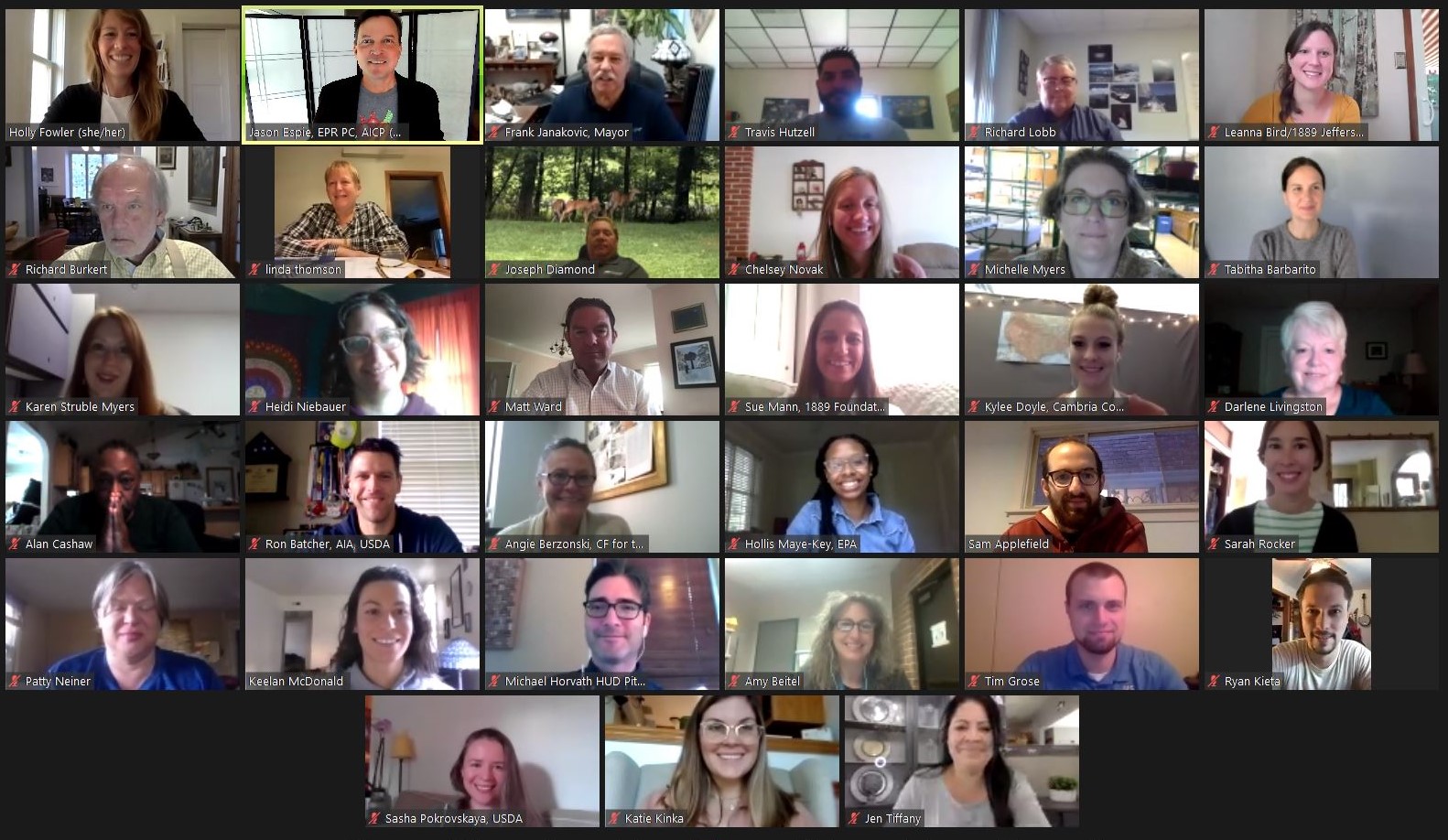Cambria County residents may soon have better access to local food and nutrition resources, thanks to a new collaborative strategy. As part of the Vision Together 2025 initiative, over 40 community members and community-based organizations came together on October 1-2, to create the finalized Local Foods Local Places Community Action Plan, available to view here.
Local Foods, Local Places (LFLP) is a federal technical assistance program sponsored by the U.S. Department of Agriculture (USDA) and U.S. Environmental Protection Agency (EPA). The program helps cities and towns across the country protect the environment and human health by engaging with local partners to reinvest in existing neighborhoods as they develop local food systems. LFLP supports locally led, community-driven efforts to improve access to healthy local food, boost economic opportunities for local farmers and businesses, protect air and water quality, preserve open space and farmland, and promote childhood wellness.
In 2020, Vision Together 2025 was selected as an awardee of the LFLP technical assistance program. Members of the community participated in the Local Foods, Local Places planning process throughout 2020, culminating in a 2-day public workshop on October 1-2, 2020, that resulted in publication of the LFLP Community Action Plan.
Ryan Kieta, Vision Together 2025 Coordinator, said “Extensive community input went into the planning process. Local food systems experts and volunteers participated in the workshops, as well as numerous state and federal agency partners. The LFLP Plan is a great roadmap for enhancing food security systems in our region and exploring food-related economic development projects.”
The workshops focused on building and strengthening institutions and partnerships to advance local food systems, increase access to food and nutrition resources, plan for food as an economic driver, implement place-making best practices, and build a more resilient community food system in Greater Johnstown.
Participants brainstormed specific actions for four goals developed by the LFLP Steering Committee:
- Improve coordination between community partners to advance food system initiatives.
- Increase access to local foods that promote improved health outcomes.
- Introduce place-making best practices to enhance Johnstown as a destination for living, working, and visiting.
- Help connect food entrepreneurs to resources to establish and grow their businesses in Johnstown.
Workshop participants included community members as well as representatives from 1889 Jefferson Center for Population Health, United Way of the Laurel Highlands, JARI, 1889 Foundation, Community Foundation for the Alleghenies, Vision Together 2025, Johnstown Area Heritage Association, Greater Pittsburgh Community Food Bank, Pennsylvania Farm Bureau, Cambria County Backpack Project, Valewood Farms, Pennsylvania Highlands Community College, NAACP Johnstown, Sandyvale Memorial Gardens & Conservancy, Greater Johnstown School District/Communities in Schools, City of Johnstown, Society of St. Vincent de Paul, Pennsylvania Farm Link, PA Department of Agriculture, Penn State Extension, Cambria Regional Chamber, Cambria County Planning Commission, Goodwill of the Southern Alleghenies, Pasa Sustainable Agriculture, and local farmers.
Leanna Bird, Project Manager at 1889 Jefferson Center for Population Health and Chairwoman of the LFLP Steering Committee, said, “The community-driven LFLP process has confirmed this region’s long-term commitment to improving the quality of life and health outcomes of residents. By expanding access to healthy foods and boosting food-related economic opportunities, especially in structural food deserts, we will ultimately see an improvement in the systemic health disparities and inequities of our region.”
Numerous “supporting cast members” were identified through the planning process as food systems stakeholders whose participation will lead to additional outreach and inclusion in implementing identified goals.
An Implementation Committee has already started to move many of the ideas captured in the LFLP Plan toward action over the next several years. The LFLP Community Action Plan is a crucial Planning Document that will assist in securing future funding for food systems initiatives, through the USDA, EPA, and other collaborating agencies.

